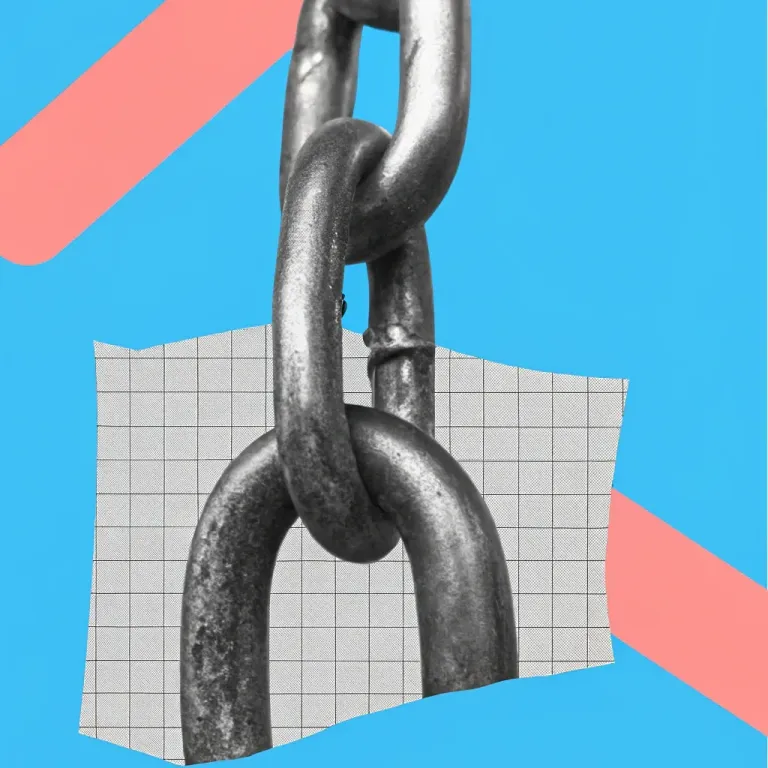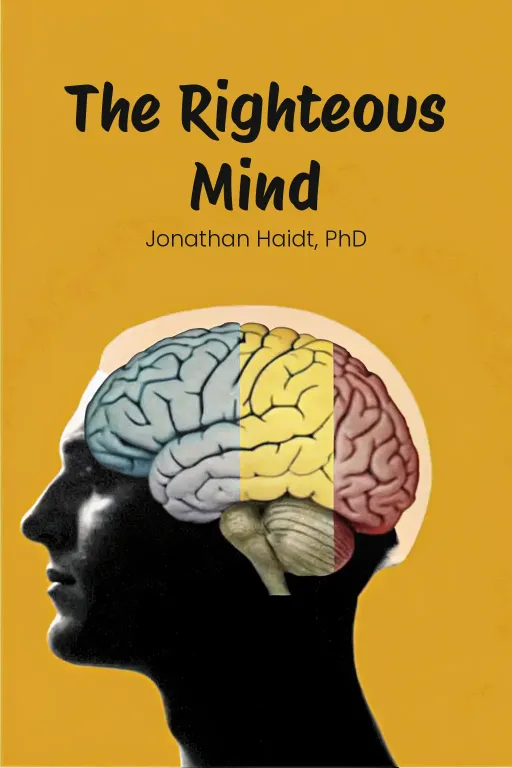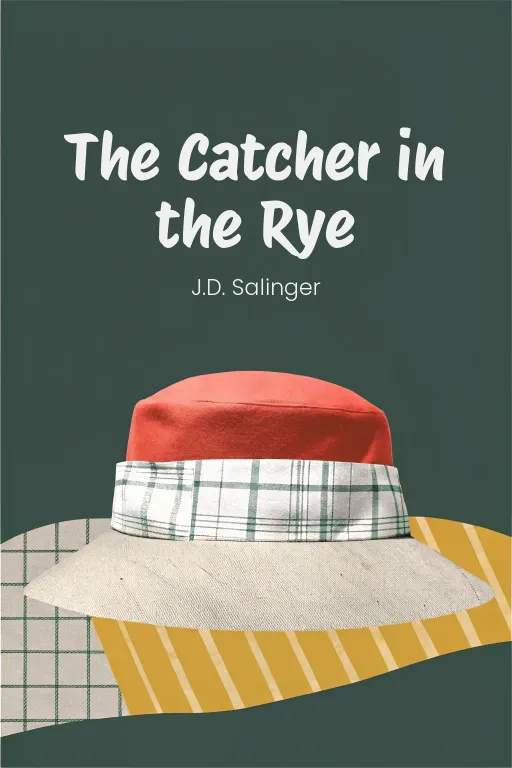
Escape the Freedom Trap
Podcast by The Mindful Minute with Autumn and Rachel
Dig Deep into Democracy and Dictatorship
Introduction
Part 1
Autumn: Hey everyone, welcome back! Today, we are tackling something that might just flip your understanding of freedom on its head. We usually think of freedom as this ultimate goal, right? But what if it's actually a paradox? Why is it that the more freedom we have, the more lost we sometimes feel? Rachel: Exactly! I mean, you'd think with fewer restrictions—more options, more independence—we'd all be skipping through life, happier than ever. But, uh, it doesn't always pan out that way, does it? Makes you wonder if this whole "freedom" thing is a bit overrated. Autumn: Well, that's precisely what Erich Fromm explored in his classic book, “Escape from Freedom”. He really dives into why freedom doesn't automatically equal peace of mind. He argues that, especially in today's society, freedom can actually lead to feelings of isolation, alienation, even a sense of powerlessness. Does that resonate with anyone? Rachel: Absolutely. Fromm really breaks it down—historically, psychologically, and even economically. He shows us how we’ve transitioned from the, shall we say, “cozy” constraints of the Middle Ages to the overwhelming individualism we have today. And, in that shift, we’re left grappling with some pretty fundamental questions: Who am I? Where do I even belong? And what “is” freedom, anyway? Autumn: And then there's the darker side, right? The ways we try to “escape” the burden of freedom. Fromm identifies things like authoritarianism, blind conformity, even destructiveness as paths people take when freedom feels too heavy a load. And—spoiler alert—we're often “not” as free as we think we are. Rachel: So, Fromm doesn't just leave us in this existential crisis, right? He actually proposes a solution—what he calls "positive freedom." It's about self-realization, and building a society that's both democratic “and” deeply humanistic. So freedom isn’t just this isolating burden; it can be about connection, creativity, and even love. Autumn: Right! So today, we're going to unpack three major ideas. First, why freedom can feel like a double-edged sword. Second, the sneaky ways we avoid it without even realizing. And, finally, how Fromm's vision of "positive freedom" might actually help us live more meaningful, connected lives. Rachel: Essentially, we're going to look at freedom in a whole new way. I guarantee you won't look at those inspirational Instagram quotes quite the same way after this.
The Paradox of Freedom
Part 2
Autumn: Okay, so let's start right at the beginning. Why is freedom such a paradox anyway? Well, Fromm starts by looking at history, at how the idea of freedom changed over time. If you go back to pre-modern societies, like the Middle Ages, people had their roles pretty much set in stone. Your life was mapped out: you were a farmer, a blacksmith, whatever. And that came with a sense of security, a feeling of belonging, right? Rachel: Yeah, no endless options stressing you out back then. You were born into something, and that was that. But wasn't that incredibly… limiting? Autumn: It definitely was. Being stuck in a role wasn't exactly liberating. But here's the interesting thing Fromm points out: there was a trade-off. People didn't have autonomy, true, but they also didn't have that modern existential angst. There was a social cohesion that gave people a purpose, even if it meant sacrificing individuality. Rachel: So, basically, you had a village, a clear set of rules, and a priest reminding you about heaven or hell, depending on your behavior. Sounds…comforting, in a slightly suffocating kind of way? Autumn: Exactly! Then the Renaissance and Reformation came along and shook things up. Suddenly, individualism became a thing. Think of Martin Luther, telling people they could have a direct line to God – no middleman needed. That's empowering, sure, but it's also terrifying. Now it's just you standing alone before the divine. Rachel: Existential dread makes its grand entrance! Autumn: It “really” does feel that way sometimes. This idea that you're left to figure out your own relationship to…everything, really, was a huge psychological change. Then capitalism piles on. People leave those feudal systems, where roles were fixed, and enter market economies – where suddenly you're selling your labor, competing to survive. Rachel: And cue the anxiety. From “divinely ordained roles” to "you're on your own, make good choices.” No wonder people started feeling isolated. Autumn: Isolation's the key here. Fromm argues that as we gained more freedom over time, we lost the structures that used to give us that sense of security. The safety net just…vanished. You can choose who to be, but with that freedom comes this overwhelming responsibility to define yourself, to carve out your own space. Rachel: Okay, but let's not get too nostalgic for those pre-modern times. I mean, not everyone was thrilled to be a peasant. Isn't there something to be said for breaking free from those restrictive roles? Autumn: Absolutely! Fromm isn't saying that freedom, in principle, isn't a fantastic achievement. It's what makes modernity so revolutionary. But he wants us to think about the cost. The autonomy we gained didn't come with an instruction manual. And that's not just a philosophical problem, it's a deeply psychological one too. Rachel: Which leads to his whole point about isolation, right? The idea that freedom isn't just about removing external constraints, but also about the internal burden of having to figure everything out yourself. Sounds exhausting! Autumn: It is! Fromm uses the example of childhood development to illustrate this. Think of a toddler learning to walk. At first, they're thrilled to be moving on their own. But then they realize they've wandered away from their parent, their safety. There’s excitement, but also fear. That, in a nutshell, is the human experience of freedom: liberation mixed with loneliness. Rachel: He mentions that Emily case too, right? The one where she finally recognizes who she “really” is, but at the same time, feels this existential tremor. Like, “Great, I know myself…now what?” That resonates! Autumn: Totally. And Fromm connects that back to modernity. When we break away from rigid social norms, we have to build our identities ourselves. That's great, but it's also terrifying. You're staring into this huge void of possibilities, and suddenly you’re paralyzed by choices. Rachel: Which brings us, naturally, to capitalism. Because if there's one system that loves exploiting paralyzed, isolated people, it's capitalism. Fromm “really” doesn't pull any punches there, does he? Autumn: Not at all. He argues that capitalism redefines freedom in a way that's even more alienating. People become commodities, valued for their productivity rather than their humanity. He even talks about how time becomes a commodity in capitalist societies. Instead of living according to natural rhythms, people are ruled by the clock, working non-stop to prove their worth. Rachel: "Congratulations, you're free to sell your labor in a market where you're completely expendable!" Freedom to participate in a brutal system… isn't exactly what we mean when we talk about freedom, is it? Autumn: No, it's not. And that's what makes Fromm's argument so powerful. He's showing us that negative freedom – freedom from constraints – isn't enough. Without something to ground us, that freedom can feel empty, even oppressive. Rachel: So, you're free… but free to do what, exactly? And that's where you start seeing people trying to escape from freedom. And Fromm says this happens in three main ways: authoritarianism, conformity, and destructiveness, right?
Mechanisms of Escape
Part 3
Autumn: Okay, so let's dive into authoritarianism, the first mechanism Fromm talks about. Basically, it's what happens when people feel overwhelmed by freedom and isolation. They either latch onto a strong authority figure or try to dominate others themselves. It's kind of ironic, right? It's like giving up your freedom to feel secure. Rachel: Right, so people willingly give up making their own choices? I mean, on the surface, that sounds a little weird. But honestly, who hasn’t wished someone would just step in and take charge? Autumn: Exactly, and that's where the appeal lies. Fromm breaks it down into masochism and sadism. Masochism is that tendency to submit. People feel so insecure and overwhelmed that they find comfort in surrendering to someone “higher up.” Think about how it plays out in fascist regimes. Fromm uses the example of Germans after World War I, dealing with economic ruin. Rachel: Yeah, and they turn to someone like Hitler, who promises to restore their pride and power. When your whole world is falling apart, that's a pretty tempting offer. Autumn: Exactly. It's not just about politics; it's deeply psychological. By submitting, they're not just escaping chaos—they're escaping the responsibility of deciding what their lives mean. They're trading freedom for a sense of safety. Rachel: And, of course, there’s the flip side: sadism. Where people deal with those same insecurities by trying to control others. Domination becomes their way of coping. Fromm says this creates a cycle. You admire power, but you also want to wield it. It’s kind of like a twisted power game. Autumn: A perfect illustration? Kafka's The Castle, which Fromm mentions. The main character is stuck chasing recognition from these unreachable, bureaucratic figures. It perfectly shows how these power structures keep people dependent and controlled. Rachel: Right, and here’s the thing: the sadists and masochists? They're really just two sides of the same coin. Both are trying to escape that feeling of being insignificant, just going in opposite directions. The sadist dominates to feel superior; the masochist submits to feel protected. Autumn: Exactly, and what links them is that core paradox: giving up freedom to avoid feeling overwhelmed by it. You’d think we’d naturally avoid giving up our autonomy, but for many, it feels like a fair trade for certainty and belonging. Rachel: Or control, if you're a sadist. Okay, that's authoritarianism, and it’s still depressingly relevant, isn’t it? But Fromm talks about another escape route: automation conformity. This one feels much more subtle. People don't give up their freedom to a specific authority; they just kind of blend into societal expectations without even realizing it. Autumn: Exactly, it’s much sneakier, and Fromm points out that it’s one of the most common mechanisms in modern society. Automation conformity is when you suppress who you really are to fit in. You give up your individuality for the comfort of going with the crowd. Rachel: So, being a cog in the machine, basically? Autumn: Exactly! And the worst part is, people often don't even realize they're doing it. They think they're acting freely, but really, they've internalized societal pressures so much that their thoughts and desires aren't really their own. Fromm calls this illusion of freedom one of the most dangerous traps. Rachel: Okay, so picture this: Steve from accounting suddenly becomes obsessed with climbing the corporate ladder, but only because he’s been told his whole life that success means long hours, a corner office, and stock options. It’s not Steve's dream; it’s the system's dream, and he's just marching along like a puppet. Autumn: Exactly. And what makes it worse is the toll it takes on you emotionally. People suppress their true selves for so long that they start feeling empty and isolated, but they can't quite figure out why. Fromm compares it to being hypnotized—you’re so influenced by external forces that you mistake them for your own feelings. Rachel: That’s…bleak. And it’s not just about work, right? Social media is a conformity playground. You’re “free” to be yourself…but by “yourself” we mean following trends, performing success, and obsessing about likes on your carefully curated posts. Autumn: Absolutely. It's the illusion of connection hiding a whole ocean of disconnection. And as Fromm points out, you lose your unique identity. You become what society wants you to be, living a hollow imitation to avoid rejection or being left out. Rachel: Let’s recap for a second—authoritarianism is about surrendering your autonomy to power, and conformity is about going along with whatever society tells you. Both are ways to avoid the hard work of figuring out who you really are. Which, I guess, makes destructiveness the most extreme? It's the final option when everything else fails. Autumn: Right. Destructiveness is what happens when submission and conformity aren't enough to ease the anxiety of freedom. Essentially, you lash out at anything that feels like a threat to your sense of control. You destroy what you can’t reconcile emotionally. Rachel: So, when life feels unbearable, you either implode or explode. Either way, it’s destructive. Autumn: And Fromm definitely explains how this has played out in history. Think about the rise of totalitarianism in Nazi Germany again. The lower middle class, struggling with economic collapse and feeling humiliated, channeled their frustrations into destructive acts. They used ideology to justify scapegoating – targeting Jews, communists, and political minorities. Rachel: Turning all that pent-up helplessness outward. I like how Fromm also connects this to Freud’s idea of a “death instinct,” although he takes a slightly different approach. Freud thinks destructiveness is kind of hardwired into us, but Fromm argues it’s more about repressed emotions and social structures that encourage violence as a coping mechanism. Autumn: Right, he’s saying it’s not inevitable – it’s contextual. When society doesn’t provide spaces for genuine connection and expression, destructiveness gets amplified, whether it’s through self-harm, violence, or large-scale atrocities. Rachel: So it’s not just primal rage. It’s desperation. People trying to obliterate what they can’t control. But it doesn't solve the underlying problem, does it? Destruction might feel like a release, but it’s still a way of escaping, not a real solution. Autumn: That's the key point. Whether it's through authoritarianism, conformity, or destructiveness, these are just masking a deeper problem: our inability to deal with the paradox of freedom. And until we address that, we're going to stay trapped in these cycles of oppression and alienation.
Positive Freedom and Democratic Society
Part 4
Autumn: So, understanding these escape routes naturally leads to examining their societal consequences, particularly the rise of totalitarian regimes. Rachel: Right, but if, like Fromm says, freedom leaves us desperate enough to fall into these traps, is there a way out? Can we redefine freedom itself so it works for us, not against us? Autumn: Absolutely. And that's where Fromm's concept of "positive freedom" comes in. It's basically his antidote to the escapist tendencies we’ve been talking about. Instead of running from freedom, you embrace it. But not as some heavy burden, you know? Positive freedom is about the "freedom to," not just the "freedom from." It’s rooted in self-realization, creativity, and, crucially, meaningful connection. Rachel: "Freedom to" what exactly, though? Freedom to, like, paint a masterpiece or just stare at clouds all day? I mean, that sounds lovely, but when the world is, you know, on fire, how do we reconcile that with, I don't know, reality? Paying the bills? Autumn: Right, Fromm isn't suggesting positive freedom is something easy or conveniently applicable every second of the day, but it starts with rejecting the idea of freedom as purely negative freedom – just the absence of rules or restrictions. Freedom isn't about indulging every impulse that flits through your head, or, you know, escaping responsibilities. It's about engaging with life in a way that's authentic and purposeful. Think about work, for example. Fromm contrasts work that feels alienating and mechanical with work that's creative, self-directed, and intrinsically meaningful. Rachel: So if I, say, toss my spreadsheets tomorrow and start crafting artisanal furniture, does that suddenly make me a beacon of positive freedom? Autumn: <Laughs> Well, maybe. If you genuinely love woodworking, and it becomes a way to express yourself, to connect authentically with the materials, and to create something meaningful, then yes, Fromm would say that's an example of work rooted in positive freedom. It's not just about the end product. It's about how the process itself connects you to yourself and the world around you. Rachel: Okay, fair enough. But what happens if someone genuinely can't ditch their alienating job? Is it trade your soul for a somewhat stable paycheck, or starve while chasing some elusive sense of purpose? Autumn: Exactly! That's where Fromm's argument goes beyond individual choice. He stresses that a society genuinely interested in fostering positive freedom has to address these systemic realities. Overcoming alienation requires more than just a few individuals deciding to drop out; it demands structural shifts that prioritize human dignity over sheer productivity. So it's a collective endeavor, not just some individual enlightenment project. Rachel: Okay, but let's say, hypothetically for a moment, we've waved a magic wand and fixed all work. No one's alienated anymore. Does that solve self-direction, though? I mean, fighting alienation is step one, but aligning people's lives with their passions requires, well, clarity of those passions. And let's be honest, not everyone knows who they are, let alone what they're passionate about! So how do you fill those voids? Autumn: Which is why positive freedom is dynamic rather than static. It’s not something you get, like a prize; it's an ongoing process of discovery. Fromm places a huge emphasis on love, creativity, and relationships as avenues for that growth. But he describes love, crucially, not as something possessive or self-serving, but as a way of connecting authentically with others while still maintaining your own individuality. And the same goes for creativity – about engaging with the world in a way that reflects your unique perspective and actually enriches it. Rachel: So part of positive freedom is creating a life where you're actively trying to live authentically and, in doing so, engage meaningfully with other people. Okay, I get that. But to do that, society has to actually make space for people to connect and contribute, right? I mean, what does Fromm say about how to get a society anywhere even near to that? Autumn: That's where Fromm's vision for a democratic society comes into play. But he's not talking about democracy as in, “vote every four years, and you're done!" For Fromm, true democracy is about active participation. It means creating structures that encourage dialogue, collaboration, and, crucially, a balance between individual autonomy and collective responsibility. Rachel: Ah. So, no more "democracy as theater," where the actual power is consolidated behind curtains of bureaucracy and media influence? Autumn: Precisely! Fromm critiques modern democracies for fostering passivity. Citizens reduced to spectators, engaging in rituals of participation, not in true, meaningful decision-making. He argues we need systems that empower people not just to vote, but to genuinely shape their communities and policies. Rachel: Okay, that sounds… inspiring. But what does that look like in practice? Because vague calls for “participation” have the same energy as corporate team-building exercises: aspirational, maybe even well-meaning, but ultimately kind of toothless, isn’t it? Autumn: He gives us concrete examples. Think participatory budgeting within communities. For instance, in Porto Alegre, Brazil, citizens collectively decide how to allocate municipal funds. It’s an active, collaborative process where individuals feel their voices actually matter. That builds mutual trust and fosters a real sense of shared responsibility. Rachel: Huh. So, people aren't just passively existing within the system; they're actively shaping it. Yeah, I can see how something like that would tap into Fromm’s idea of nurturing a "social character," too. But isn't "social character" basically code for "utopian personality traits we wish people had"? Autumn: No, not at all. Fromm argues that every society fosters collective traits... it's unavoidable. Consumerist cultures, for instance, nurture materialism and competitiveness. So, when he talks about fostering empathy, interdependence, and respect, he's identifying traits necessary for a thriving, truly democratic society. It's less utopian and more of a blueprint for cultivating healthier collective norms. Rachel: Okay, but nurturing collective values—that sounds... slow. Especially against today's backdrop of, well, let's just call it "apocalyptic vibes." How does this whole vision of societal transformation actually stand a chance? Autumn: Fromm sees it as a process, yes, but one with both immediate and long-term payoffs actually. He argues that fostering structures that enable both personal freedom and collective engagement is essential for survival. Not just idealism! Societies function better when people feel they belong, feel they have real stakes in collective outcomes, and, crucially, when their individuality adds to the richness of the tapestry rather than threatening its cohesion. Rachel: And this brings us back to positive freedom. It's not "You're on your own!" or "Lose yourself in the collective!" It's about coexisting—teasing out individuality while embracing our shared humanity. Autumn: Exactly! Fromm’s whole vision of positive freedom builds that bridge between individuality and community. When we're free to be ourselves authentically, while also contributing meaningfully to something larger, that’s when we truly thrive.
Conclusion
Part 5
Autumn: Alright, so to bring it all together, Fromm's “Escape from Freedom” really dives into how our quest for freedom can, ironically, both set us free and make us feel totally isolated. We've touched on that tricky paradox of freedom, those ways we try to escape it—like blindly following authority, just conforming, or even turning destructive—and, importantly, the idea of positive freedom, as a way towards truly understanding yourself and connecting with others authentically. Rachel: You know, what's really striking is just how relevant all of this still is. Fromm might have been writing about the anxieties of the mid-20th century, but honestly, the anxieties around extreme individualism, feeling disconnected from society, and just the sheer weight of freedom, they haven't disappeared. If anything, they've gotten even bigger in our hyper-connected, but often isolating, world. Autumn: Exactly! Which is why his whole idea of positive freedom just hits so hard. It's not just about breaking away from what's holding you back, it's about actively building lives and systems that encourage creativity, love, and really being involved in a meaningful way. He's challenging us to think not just about what we're free from, but what we're free to create together. Rachel: Right, so here's a question to chew on: in your own life, how much of your freedom feels… real? And how much feels like a bit of an illusion? Maybe shaped by what society expects, or just your own fears, or just doing the same old thing out of habit? Are you truly expressing who you are, maybe challenging things that are broken, or are you just going with the flow because it's easier? Autumn: And building on that, how can we, you know, as individuals and as communities, build spaces where freedom is more than just avoiding things or escaping? Spaces where people can be themselves but also feel connected and have a shared sense of purpose? Rachel: Heavy questions. No easy answers, but hey, maybe freedom was never meant to be a walk in the park. Autumn: True, but maybe it's only by wrestling with these questions that we really find ourselves—and each other. Thanks for tuning in, everyone, and we hope Fromm's ideas keep you thinking. Rachel: Until next time—stay free, but really, really think about what that actually means.









